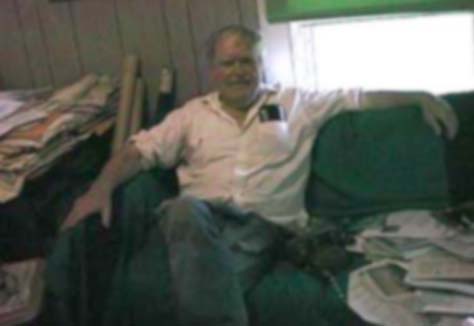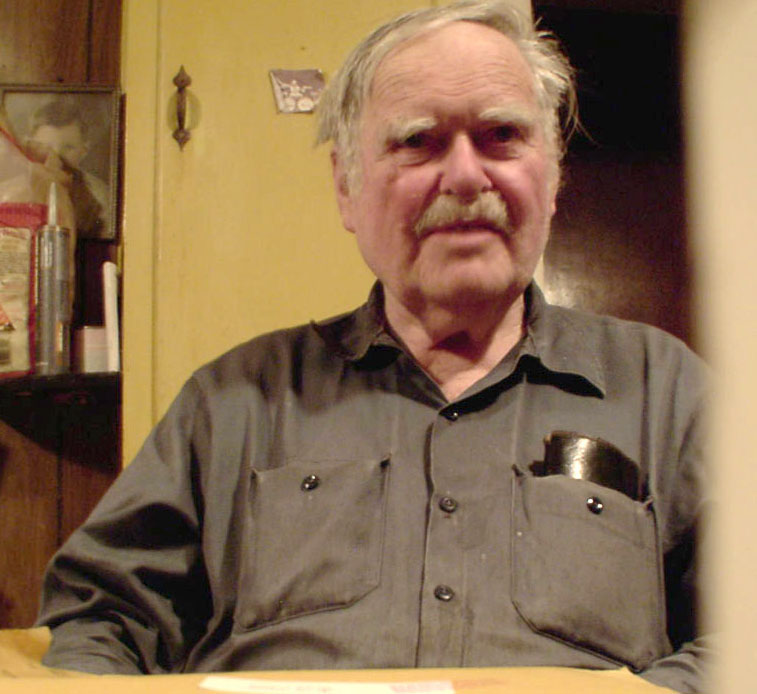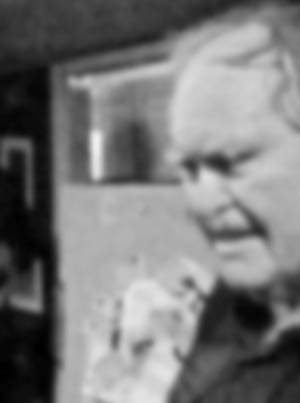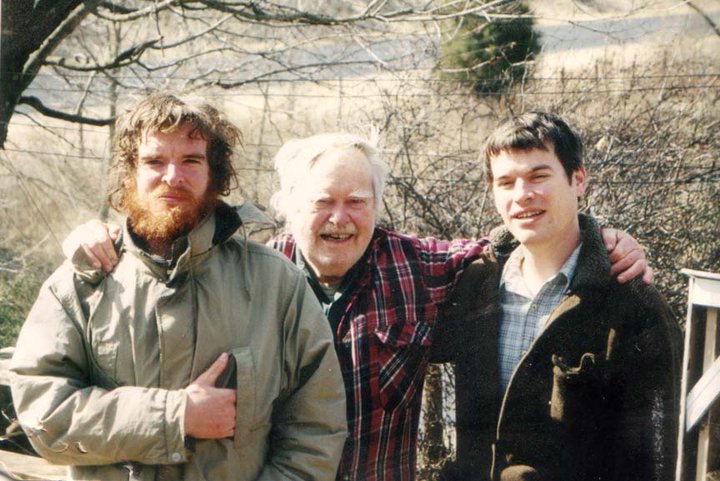







Drafted into the European theatre during World War II, Robert served mostly in the military police and never rose above the rank of private. In Wisconsin, Robert's first language had been German, which made him valuable as an interpreter (though Nazi troops routinely made fun of his quaint Austrian peasant vocabulary and 18th-century cultural references). He had many stories from this period, including his shock upon first hearing the expression "mother fucker." He was in Germany when the atomic bombs were dropped on Japan, and he remembered feeling relief that the war was finally over. He'd been dreading the possibility of being reassigned to a ground invasion of the Japanese homeland.
Back in Wisconsin, Robert took advantage of the GI Bill to enroll at the University of Wisconsin at Oshkosh. He'd dropped out of high school in the 9th Grade, but evidently in those days this wasn't a problem. Soon Robert had moved to the main campus in Madison, where he remembers arguing with pro-McCarthy thugs during the height of McCarthyism.
After graduating from Madison, Robert went on to graduate school at the University of Chicago, eventually earning a PhD in Geology. Along the way he studied fossils in the Burgess Shales of British Columbia, oceanography at Scripps Institute in La Jolla, California, and mining petrology in Quebec. In time he became a Junior Professor at the University of Chicago. But, being of a somewhat cantankerous sort, he eventually ran afoul of his superiors. There was a story circulating that had Robert threatening a disliked colleague with a geologic pick (or, in another telling, pissing on him).
Robert's best friend in Chicago was the paleontologist Robert DeMar (1931-2007). The two would spend many evenings drinking at Jimmy's, a bar catering to the university community. One day DeMar mentioned that his sister Betty would be coming up from Arizona for a visit, jokingly adding that he should "fix you up." Robert Mueller and Betty DeMar married in early January of 1964. Within a year they had their first son, Don.
After burning all his bridges with the University of Chicago, Robert Mueller was hired by the National Aeronautics and Space Administration (NASA) to work as a Planetary Geochemist at Goddard Space Flight Center in Greenbelt, Maryland. Soon after moving to Maryland, Betty and Robert had their second (and last) child, Gus.
After a number of years at NASA, Robert gradually transitioned from using Russian probe data to study chemical equilibria on the Planet Venus to using satellite photographs to study environmental problems on Planet Earth. He started with studying siltation problems caused by suburban sprawl around the District of Columbia, but eventually moved on to studying the risks of a nuclear power plant planned for Douglas Point near Washington, DC. When this paper, the first-ever published by the federal government espousing an anti-nuclear viewpoint, was used by anti-nuke activists nationwide to fight other nuclear plants, Robert soon found himself once more at odds with his superiors. What had been a free and uncritical work environment gradually became claustrophobic.
Meanwhile Robert was finding himself drawn increasingly into environmental battles. He helped to found a local environmental coalition in the early 1970s that successfully fought a planned extension of Interstate 95 inside Washington's Capital Beltway.
Eventually Robert had had enough of his superiors at NASA and in 1976, he and his family moved to a 28 acre farm in the rural Shenandoah Valley of Virginia. From then on he worked as a homesteader, maintaining multiple gardens, goats, chickens, and crop fields. Eschewing unsustainable technology whenever possible, he preferred using primitive human-powered tools such as scythes and cross-cut saws.
When it came to matters of soil quality and climate, Robert and Betty had done their homework, and the farm was soon providing the bulk of life's essentials. They'd been less thorough about researching the sociology of their new-found community, and were alarmed to discover that there were bible lessons being taught at their children's new public school. More immediately problematic, though, were their new neighbors. Initially they'd been bursting with southern hospitality, but over time it became clear that there was going to be trouble. When the new "pig barn" built by the guy across the street turned out to be an auto body repair shop, Robert and Betty reported it to the zoning authorities. But they hadn't counted on the strength and reach of the local good ole' boys network. After several years of lawsuits and a few scary instances of hostile gunfire, the neighborhood quieted down. Nothing was going to drive the Muellers from their farm; indeed, they bought more land and it doubled in size.
By the early 1980s, Robert was working once more as a grassroots environmentalist, this time trying to protect local National Forests from the clear-cut-happy culture of the United States Forest Service. Having given up on the moderate approach of such groups as the Sierra Club, Robert cast his lot with Earth First!, a radical upstart group routinely denounced as "terrorist." Viewing environmental issues from the quantitative thermodynamic standpoint of a geochemist, the many articles Robert wrote for Earth First!'s monthly publication were refreshingly-free of woo-woo mumbo-jumbo.
In the 1990s, Robert gradually transitioned out of activism and began to focus most of his attention on cataloging the plants and animals of the Central Appalachian wilderness. With the assistance of his son Gus, he managed to place most of this material online.
On November 2nd, 2011, his 88th birthday, Robert F. Mueller died at home, in the house where he'd lived so happily since 1976. He is survived by his wife Betty, his two sons, his beloved dog Maple, and a cat named Caliche (the second cat by this name he has had; it's a geochemistry term).